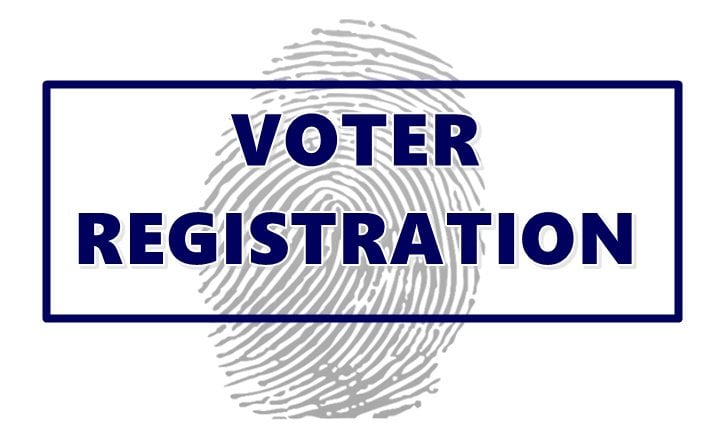2022 Elections is just around the corner, and only a few days remain to register for the Philippine Presidential elections on May 9, 2022. However, considering the extra challenges provided by COVID-19, it is advisable to register as early as you can. Know the requirements on how to register, the process, and more on the Philippine election 2022 registration.
How to register to vote:
1. Check to see whether you fulfill the qualifying conditions.
- Filipino national
- On or before Election Day, you must be at least 18 years old (May 9, 2022)
- A resident of the Philippines for at least one year and a resident of the voting district for at least six months
2. Locate and schedule an appointment at your Comelec office.
For most areas, it’s in the town hall. You may visit your Comelec office in your city or check their website and ask whether a booking schedule is available if you're unsure.
Check your office time since they vary from one area to another. Appointments should be arranged at least a week in advance due to a significant amount of inquiries and restricted areas due to the pandemic.
3. Print and complete Comelec paperwork at home.
The official Comelec forms may be found on their website.
While most people just need to complete the Voters’ Registration form (CEF-1) and Coronavirus Self Declaration Form, there is a supplemental data form for people with disabilities (PWDs) and indigenous peoples.
Fill out the voters’ registration form along with the other requirements prior to your visit, leaving only the signatures and thumbprints to be completed at the Comelec office to save time.
4. Make a Photocopy of your valid ID
To validate the legitimacy of your data, you must at least give one of these IDs:
- Employee ID, with an employer's or authorized representative's signature
- Postal ID
- Person with Disability ID card
- ID or library card of the student signed by the school authority
- Senior Citizen's ID
- Driver's license
- NBI clearance
- Passport
- SSS/GSIS ID
- Integrated Bar of the Philippine (IBP) ID
- License issued by the Professional Regulatory Commission (PRC)
- Confirmation Certificate given by National Indigenous Peoples Commission (NCIP)
- Any other valid ID
Verify your TIN conveniently. Read more on Mobile TIN verifier application.
You are now ready for your registration appointment in the Comelec Office. Don't forget to take the following with you:
- Completed forms
- Valid ID and photocopy of the valid ID
- Ballpen
- Face mask and face shield
- Alcohol for sanitizing
After completing the following requirements, you can now go to the Registration Office. You might want to go early because due to the pandemic, there are limited number of people, restrictions, and cut off.
Registration Process
1. Contract Tracing
Visitors are often limited and have restrictions, therefore you might queue or stationed outside to complete the form.
2. Review and signing of applications
An electoral officer will evaluate your request, check any possible mistakes, and have you sign it.
3. Logging system application
The application is scanned and entered into the registration system of the Electoral Register Board (ERB).
4. Capture of biometrics
Take your photo and leave your fingerprints and digital signatures.
5. Stub Claiming
After completing the whole registration process, the assigned registration officer will detach, date, and stamp your registration stub. Make sure to keep your stub safe for you to certify that you applied for the voter registration. Voters registration 2021 ends on September 30. Make sure to register before the said deadline.
Election 2022
The Philippine presidential and vice-presidential elections for 2022 are planned to take place on Monday, May 9, 2022. This will be the Philippines' 17th direct presidential election and 16th vice-presidential election since 1935, as well as the country's seventh sextennial presidential and vice-presidential election since 1986.
Various parties concerned have suggested these adjustments as the country prepares for elections in the Philippines in 2022 – the first nationally in the context of a worldwide health crisis. These reforms are part of the Philippines elections.
There is still nothing authorized, yet nothing was excluded. In the Plebiscite in Palawan held in March, the Elections Commission (Comelec) and polling staff look at it as a blueprint for elections next year. They analyze the experiences of nations that voted extensively during the pandemic.
Face-to-face campaigns are prohibited
The Comelec has been clear from the beginning: rules for in-person campaigning would be strictly enforced to prevent campaign sorties from becoming super-spreader events. It is unclear how stringent the rules will be.
On February 2, Comelec spokesperson James Jimenez suggested the idea of outlawing face-to-face campaigns but subsequently admitted a day later that an outright ban “might be a bridge too far” in the face of legislative resistance.
The Commission on Election also addressed the idea of suspending the 2022 elections.
The Comelec, the election monitors, and other stakeholders have strongly opposed the notion of postponing the election on May 2022. After the fact, the Constitution of 1987 specifically specifies that, unless otherwise legally permissible, "regular elections for the Chair and Vice-President will be held on the second Monday of May".
There is no official pressure in the legislative branch to postpone the elections at this time. Comelec also stated that a no-election situation is improbable, but that the public should be on the lookout for politicians who would push against the holding of polls on May 9, 2022.
“The public should be concerned about those advocating for a no-election situation. But, whether a no-election scenario is possible or not, we are solidly in the ‘it is unlikely to happen' category”, according to Jimenez.
The Comelec and other stakeholders are racing against the clock to complete all tasks before May 9, 2022, when Filipinos will vote regardless of the pandemic danger.
The poll panel recognized that preparations are proceeding at an unprecedented rate as a result of the pandemic's burdens.
James Jimenez, Director of Commission on Elections said “There will be a lot of changes in the electoral process, new things coming up, and everyone is just really straining to stay on top of everything”.




